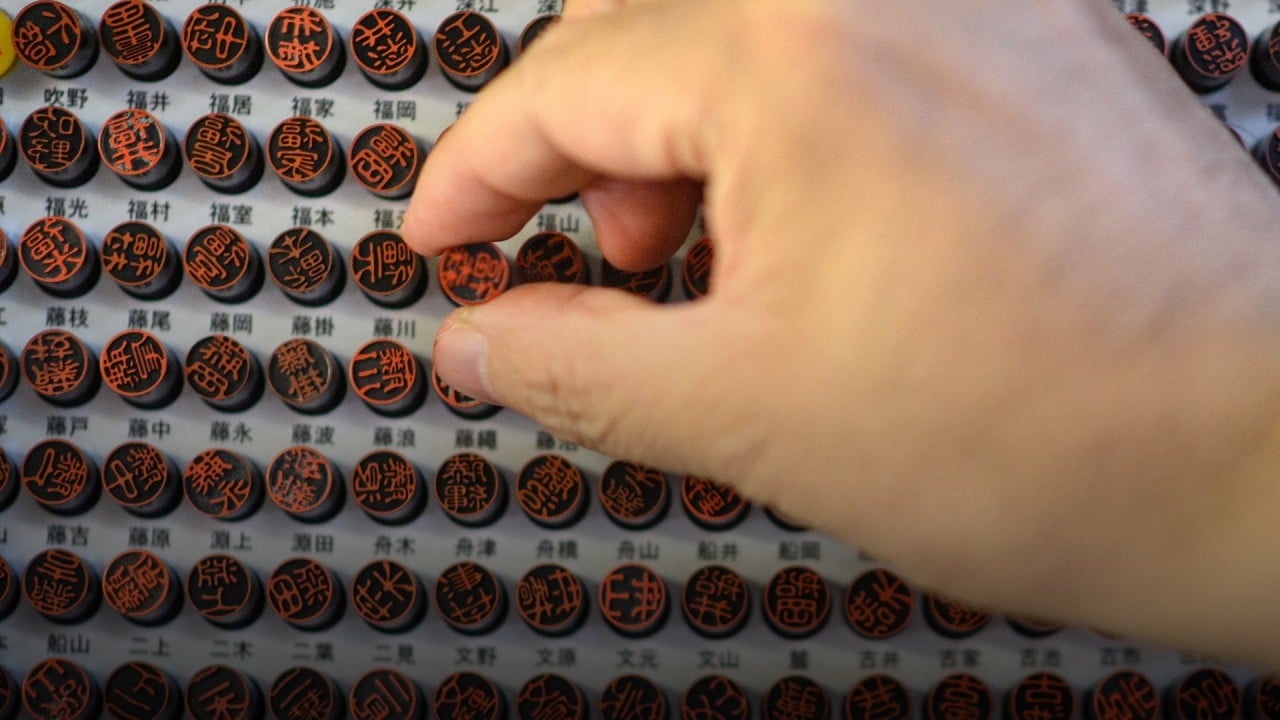
Analysis | Could digital signatures, e-contracts take the costs and hassle out of residential property transactions in Hong Kong?
- Regulations requiring deals to be completed in person make the process time-consuming and expensive – especially during a pandemic
- But allowing digital signatures poses problematic issues such as potential fraud and identity verification, lawyers warn
“It adds up to HK$10 million on a two-year leasing term until the whole project sells out,” said the developer’s chief executive Nick Tang Ho-hong.
“Imagine if we could complete the whole process of [selling] homes online. It could save a lot.”
Buyers in Hong Kong, if they can afford to, can appoint a power of attorney to sign documents on their behalf. In general, though, banks still prefer the borrowers themselves to sign the loan and mortgage documents.
Plus, the chosen power of attorney would still face the problem of being barred from providing an online signature for the property transaction.
“With today’s advanced technology, [digital signatures] should be the future trend in the industry,” said Sammy Po, chief executive of Midland Realty’s residential division.
Hong Kong’s fearsome fifth wave of the pandemic, which prompted the toughest set of social distancing measures to date, has sunk housing transactions.
At present, sales agents have to bring the preliminary contracts to their clients’ homes or offices to sign if they cannot find time to visit the agency.
“It would be more efficient if customers could sign online,” Po said.
Blockchain is starting to be used a little more widely for authenticating transactions, said Indraneel Karlekar, global head of research and strategy at Principal Real Estate Investors.
“We are seeing a lot more adoption of technology to enable the real estate investment process. So I think we’re going to see that evolve over time,” said Karlekar. “Particularly when it makes the transaction process more efficient, I think that’s generally to be welcomed.”
But for it to really take off, the legislation would need to change.
The government should reform land and conveyancing laws to permit e-signatures in property transactions, especially in the wake of the Covid-19 pandemic which can make meeting in person impossible, said Dr Thomas So, chairman at the eBRAM International Online Dispute Resolution Centre.
Hong Kong developers join proptech bandwagon as opportunities abound
The law is different for rental agreements.
“If both parties agree to use an e-signature service for their lease agreement … they can sign documents anywhere, anytime from any devices such as smartphones, tablets or laptops,” he said.
Many tools are available to validate the identity of signatories, So added.
eBRAM is a not-for-profit company established in 2018 with the support of the Asian Academy of International Law, the Hong Kong Bar Association, and The Law Society of Hong Kong.
A proptech platform that makes investments possible with just a photo
Land transactions in Hong Kong operate under a deeds registration system governed by the Land Registration Ordinance (Cap. 128). This legislation was first enacted in 1844 and is the oldest local law still in force in Hong Kong.
It requires the buyer to appoint a lawyer to contact the seller or the relevant mortgage bank to check the title of the house deed.
The aim of this is to make sure the seller actually owns the property, and is legally permitted to sell it. During the conveyancing process, the buyer’s solicitor has to review historical title documents to establish a “clean” title to the land, a process that can take weeks.
Chinese real estate firms bet on proptech to fight Covid-19, cut costs
There can be little doubt life would be a lot easier for all parties if digital signatures were permitted during this part of proceedings, especially during a pandemic.
“This process undoubtedly increases the buyer’s costs and is time-consuming,” said So. “Moreover, banks often store deeds in offshore warehouses to save storage costs, which takes time and [adds to the] costs to access the deeds when needed.”
Property transaction documents are required by law to be kept for years. E-signing and secure online filing systems save physical storage space and are more reliable than a paper deed, said So.
Coronavirus spurs use of proptech to guard against invisible threats
Executing property purchases entirely online has a long way to go in Hong Kong, even as Covid-19 restrictions have made people more aware of the advantages of digitalisation.
The city would need to implement the Land Titles Ordinance, recognise e-signatures in property contracts and modify the relevant laws before online real estate transactions would stand up in court.
Ambrose Lam, a legislator representing the legal constituency, said the Development Bureau is working on the Land Titles Ordinance, which was enacted in 2004 to establish a new registration system, but has still not been implemented.
China embraces use of proptech to improve office design and efficiency
The new system, which would replace the deeds registration system, aims to provide greater certainty around property titles and to simplify the procedures for checking title documents during conveyancing. It can save the banks time wasted on retrieving the paper documents.
In June 2018, Secretary for Development Michael Wong cited various complicated issues to explain the delay in implementation. They included “the mechanism for converting and bringing existing land to the land title registration system, and rectification and indemnity arrangements”.
Lam said the new bill – whether it be a revised version of the old one or a totally new one – may be submitted to the Legislative Council for review in the third quarter of this year, and may initially only cover new properties.
How proptech is changing Hong Kong’s property industry
In an emailed reply to the Post, the Development Bureau said the government “will consult the Legislative Council on legislative amendments for implementing the Land Titles Ordinance on newly granted land first to provide greater certainty to the titles of privately owned land.”
“The Government has secured the general support from the key stakeholders on the “New Land First” proposal, including the Consumer Council, Estate Agents Authority, Heung Yee Kuk, Hong Kong Association of Banks, Hong Kong Bar Association, Hong Kong Mortgage Corporation Limited, Law Society of Hong Kong and Real Estate Developers Association of Hong Kong (Reda),” the bureau said in a statement.
“To take the matter forward, the Land Registry is making necessary preparation to facilitate law drafting for amending the LTO, and e-lodgement of applications for registration will also be included in the legislative amendment proposal,” the bureau said. “The Government plans to consult the Panel on Development on the “New Land First” proposal in around [the third quarter] on the direction and timetable for taking forward the legislative amendments.”
Proptech platform with Groupon-like model aims to shake up market
Lawyers are often reluctant to push e-signatures because they believe there is a heightened risk of fraud.
While digitalisation is a global trend, not signing contracts related to land in person poses complex and problematic issues such as potential fraud and identity verification, said Lilian Chiang, senior partner and head of the property department at Deacons.
“Working the entire process online is not valid, and is dangerous,” said Chiang. “The entire process is not recommendable because of the fraud risk.”
Many countries, such as Australia and Canada, are reluctant to allow the remote witnessing of signatures too, Chiang said.
Standard Chartered to open paperless ‘green branch’ in Hong Kong
As properties are expensive, Chiang said buyers are likely to want lawyers to verify the sellers’ identities thoroughly.
According to a circular from The Law Society of Hong Kong released in September 2020 about real estate work, in rare and exceptional circumstances, a meeting between lawyer and surety, or guarantor, may be held by video conference.
But this only applies in cases where the guarantor of a security transaction such as a mortgage is overseas and Hong Kong is off-limits because of the Covid-19 pandemic. It does not apply to other types of property transaction, Chiang noted.
In such cases, the law firm must take reasonable steps to ensure the meeting is held in private and in the clear absence of the borrower – to avoid the possibility of undue influence on the guarantor. For example, the firm should arrange for the surety to visit a meeting room at the firm’s overseas branch office, the overseas notary’s public office or the lender’s overseas office. Proper identification procedures must be undertaken.
Hong Kong judiciary moves step closer to use of digital documents
Even after all this, Chiang said, the mortgage would still require the bank’s approval and cannot just be done from home.
The needs of know-your-client protocol, ensuring the mental capacity of the client and eliminating potential fraud necessitate the signing of property contracts in the offices of law firms, said Doreen Kong, council member of the Law Society.
Lawyers also need to ensure the absence of “undue influence” – that the party signing the contract did not make the decision under duress.
In mainland China, video and the internet only serve as “auxiliary contact tools”, so the contract parties still have to sign a formal written contract, said lawyer Xiang Fangliang of Shanghai BeautyValley Law Firm.
Hong Kong bourse moves ahead with paperless IPO plan
“The contracts for the sale of houses or mortgages only by audio and video are oral contracts and are generally invalid,” said Xiang.
If a Hong Kong resident wants to buy a house in Shanghai, and he or she cannot come to the mainland to sign a contract and transfer ownership in person because of the pandemic, they should sign a power of attorney and find a suitable lawyer for notarisation in Hong Kong. Then the mainland trustee will handle the relevant signing and transfer procedures.
The challenge posed by the inability to travel for cross-border deals could be bigger for traditional property companies, especially the more hierarchical Japanese firms, which often require a senior colleague from head office to come down and oversee proceedings – even the signing of a lease – said Shern-Ling Koh, portfolio manager at Principal Real Estate Investors.
Hong Kong takes a baby step towards making home sales paperless
Digital signatures in property transactions may not be legally enabled any time soon. However, as the world is growing increasingly “paperless” and more documents move into the digital space, some legal experts believe demand for a better system is bound to keep growing.
“With the growth and development of e-commerce and NFT transactions in Hong Kong, the increase in demand for a more advanced and efficient property transaction system is foreseeable in the future,” said Polly Chu, a partner at law firm Withers.
Developers and agencies have been increasingly turning to virtual reality videos, videoconferencing software like FaceTime or Zoom and online listing platforms to attract buyers and tenants amid social distancing measures.
But even if digital signing is enabled, developers may decide not to adopt a fully online approach.
“Developers will still use both online and offline approaches to market flats as customers like to visit the show flats in person,” said Tang of Wang On.
Additional reporting by Sandy Li



